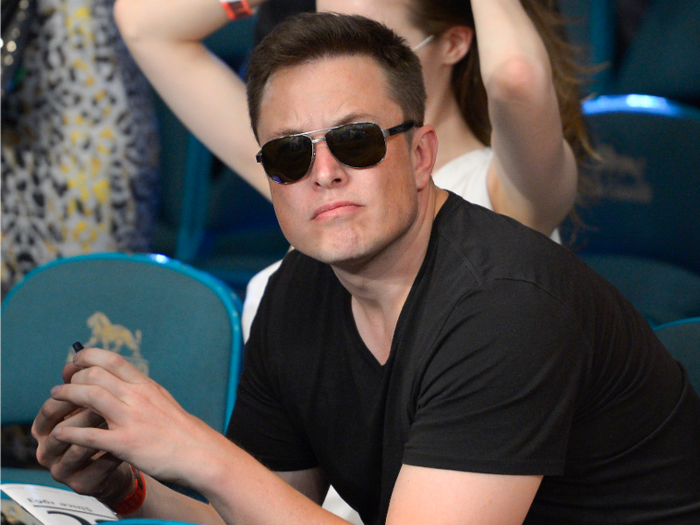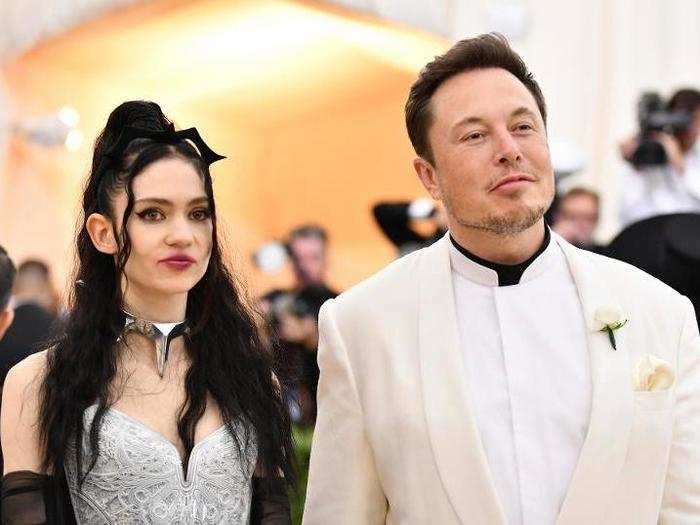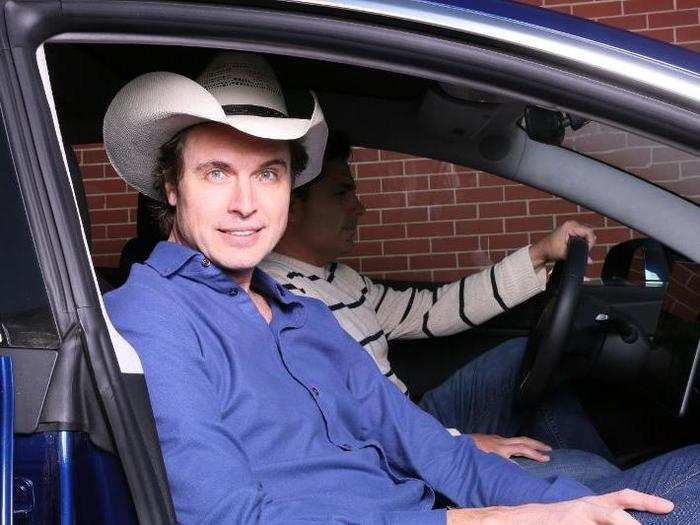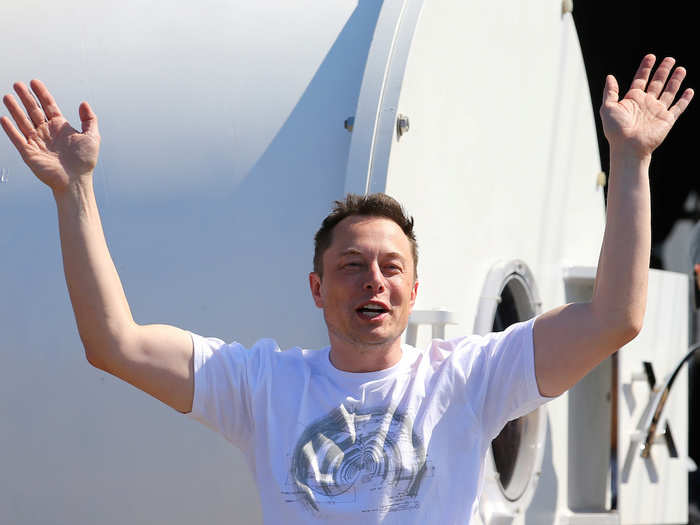- Home
- slideshows
- miscellaneous
- Elon Musk's fame used to be a huge advantage for Tesla - but now it's becoming a problem
Elon Musk's fame used to be a huge advantage for Tesla - but now it's becoming a problem
Every time your unpredictable CEO says something bizarre to investors or starts banging away at his iPhone keyboard, the stock can pitch up and down.

Musk takes everything personally. Very personally.

I left out the part of the earnings call where Musk attacked journalists, whom he sees as compromising the safety of motorists by writing negative items about Tesla's Autopilot technology.
Musk does, in fact, believe that this semi-self-driving system saves lives, and over the long haul, he could be right. But that's assuming Autopilot evolves over time. At the moment, it's effectively just advanced cruise control.
"[I]t's really incredibly irresponsible of any journalists with integrity to write an article that would lead people to believe that autonomy is less safe," he said on the call. "Because people might actually turn it off, and then die. So anyway, I'm really upset by this."
Tesla has argued that Autopilot improves safety, but the US government has disputed Tesla's use of some statistics to support the claim.
Musk is entitled to his opinion, and he's entitled to be upset at journalists. But he shouldn't be telling them what to write about if they think Autopilot might be so oversold to the public that some drivers think it can provide a higher level of self-driving than it does.
There are times to take stuff personally, and times to accept that journalism doesn't care how you feel.
His commitment to spending his nights in the factory to fix the biggest existential problem the company has every faced goes out the window if he has the chance to walk a red carpet 3,000 miles away.

In the past few weeks, Musk has emailed Tesla employees to stress that the company must stop wasting money and over-utilizing contract workers. He's also dispensed management and productivity advice. And he recently assumed personal oversight of Model 3 production, which is miles behind where it was supposed to be at this point.
None of this was evidently mission-critical enough to keep him close to the factory in Fremont, CA — not when the bright lights and madcap spectacle of Fifth Avenue and the Met Gala beckoned!
No one wants to rob a multi-billionaire of his fun, but this doesn't exactly send a disciplined signal to the assembly line workers at Tesla's plants, nor to the engineers who are now furiously trying to correct the damage done by Musk's mistake of using more automation in manufacturing the Model 3 than Tesla could handle.
You never know when he's going to support something extremely iffy, like having his brother on the board of directors.

Tesla's board is very light on auto experience. Only Robyn Denholm has ever spent any time in the car business, and that was with Toyota in Australia, according to his bio.
CtW, an investment advisor for union pension funds (some of which hold Tesla stock), thinks this means that Musk's brother, Kimbal, has no business being on the board, arguing that he "has no professional experience in the auto industry" in a letter urging shareholders to vote him off next month.
Kimbal indeed has no auto-industry experience beyond serving on Tesla's board since 2004. Musk does have an all-in-the-family attitude toward business — his cousin, Lyndon Rive, was CEO of SolarCity prior to Tesla merger with the solar operation in 2016.
But with all the misfires Tesla has endured since just 2015, when it launched a production-plagued Model X SUV, Musk as Chairman of his board and CEO could use some more seasoned advice about running a carmaker. The Model 3 debacle should have brought this home for shareholders. It's possibly the most thoroughly botched rollout of a hyped vehicle in the history of the industry.
Time to get serious now. One can explain Musk's behavior as Elon being Elon — up to a point. But this latest episode has raised some questions about his leadership.

The era of charismatic auto chiefs ended about a hundred years ago. Even then, Henry Ford wasn't exactly the life of the party.
And while Enzo Ferrari and Gianni Agnelli symbolized a certain flamboyant Italian alternative to American industrialists and the culture of German engineering, not to mention the relatively low-key nature of Japanese automakers, the modern car company requires leadership that values execution. And as Musk has lately been admitting, extended periods of profitability.
Tesla has been around for 15 years, and a public company since 2010. It has never posted an annual profit. General Motors, on the other hand, returned to the public markets in 2010 after a bankruptcy — and has made over $70 billion.
Their market capitalizations are essentially the same: about $50 billion.
How much of that cap for Tesla has come from Musk's megawatt-level celebrity? Probably some. Maybe a lot. Tesla routinely cites the "great man" risk in its official filings with the SEC, and the Tesla board voted on a new pay package for Musk that would make him mega-rich and take Tesla's market cap to $650 billion. Clearly, they want to keep him around.
But here's the problem. Celebrity Musk has been quite valuable in getting Tesla to this point. But ever since the catastrophe of the Model 3 launch — which began last year and still hasn't been rectified — Musk's flaws have been on display.
He's not good at all when it comes to the basic blocking and tackling of mass-production. In fact, he seems to hate the whole idea of automotive best practices, preferring to reimagine vehicle production as a much more heavily robotic undertaking.
That didn't work, and Tesla is paying the price while Musk is yet again being dragged back to the present from the future. He might be famous. But that isn't going to get the Model 3's rolling out the door.
Popular Right Now
Popular Keywords
Advertisement